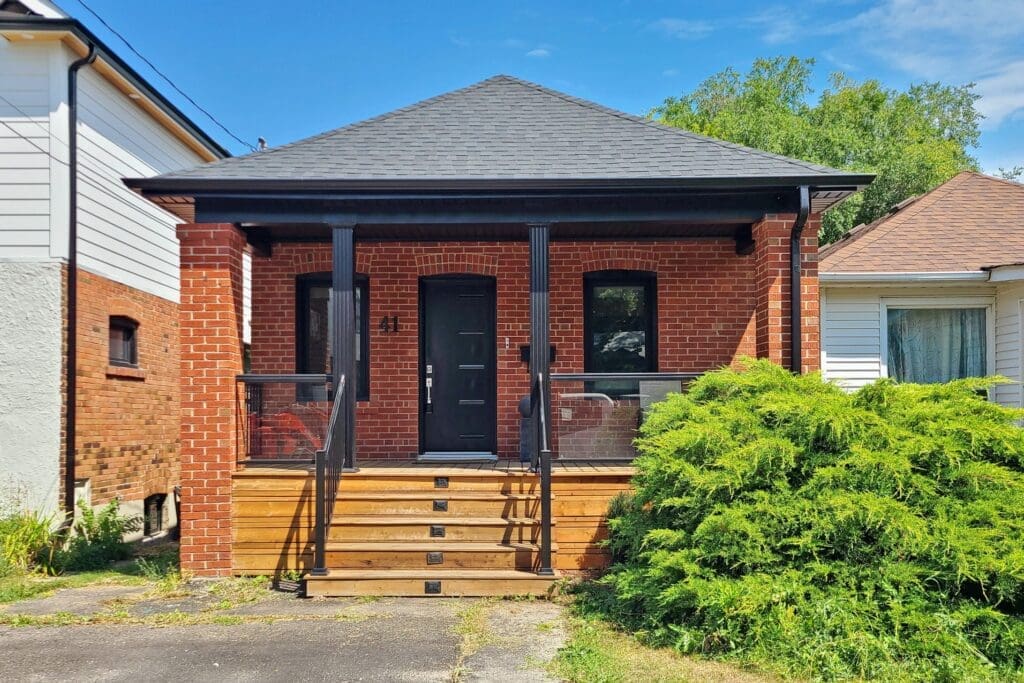On its own, selling a home is a pretty big undertaking. In addition to the expected stresses that come with the process, helping your older parents sell their home – or selling on their behalf after they’ve passed away can be an emotional and sometimes overwhelming experience.
But with the right planning, patience, and communication, you can make their transition to a new living space and the home selling process much easier.
In this blog, I’ll cover some of the major details involved in selling your parents’ home, whatever the circumstances may be. Let’s get started.
Looking for guidance on selling your parents’ home? I can help! Call or text me at 647-239-7587 or send me an email at melissa@southetobicoke.com to get started.
Plan Ahead When You Can
When it comes to selling your parents’ home, recognizing the need to move in advance can help reduce stress and make the process easier. If you have the time, begin with an open discussion amongst your family about everyone’s feelings. This can help ensure you’re all on the same page when planning for their move. Of course, life is full of surprises and sometimes circumstances pop up in which you’ll need to help them sell their home sooner than you thought.
We’ll touch on it later in this post, but if you’re thinking about selling your parents’ home in the future or have already been tasked with doing so, reach out to a real estate agent. No matter the reason for moving, working with the right professionals can help you and your parents navigate selling on any timeline.
Preparing to sell your parent’s home? You may find these other blogs helpful.
- Selling Your Deceased Parents’ Home: First Steps
- What Happens When Someone Dies in a Home?
- Probate & Real Estate in Ontario
Consider the Financial Aspect
Like any move, selling your parent’s home requires thoughtful financial planning. In order to make the best choices for them, you’ll need to know as much information as possible about their finances. This includes details like their income, mortgage status and payments and also relevant tax considerations.
If possible, partnering with your parents’ financial planner can help you budget for them successfully. If they don’t have one, finding a financial planner who specializes in retirement planning can help you find the best path forward.
Get a Head Start Decluttering
On its own, downsizing to a smaller living space can be a stressful experience. When you combine the challenge of decluttering with the other considerations that come with selling your parent’s home, it can feel overwhelming. Thankfully, like the other items on this list, careful planning can help make the process smoother.
Decluttering is no small task, and shouldn’t be rushed. I recommend taking a few weeks or even months to navigate this process. Many items in your parent’s home will not be able to go with them to their new living space, as a result, you’ll need to determine which items they can keep. Items that they are unable to take can be thrown out or recycled if they are worn conditions. Other items can be donated to local organizations or offered to family and friends.
If your parents have lived in their home for some time, this can be an emotional process for both you and them. Many items in their home will likely have sentimental value, so take time during the decluttering process to reminisce and enjoy shared memories.
Never sold a home before? Explore these other posts from my blog – they may come in handy.
- How to Get a Home Ready For Sale
- 10 Real Estate Hacks for Sellers
- 5 More Mistakes to Avoid When Selling Your Etobicoke Home
Don’t Forget About Power of Attorney
Depending on the circumstances, you may be required to make legal decisions on behalf of your parents during the selling process. In Canada, there are important designations that allow individuals to act on behalf of their loved ones.
If you are looking to sell your parents’ home for them and they are still alive, you’ll need to gain power of attorney (POA) in order to do so legally.
What is POA?
In simple terms, having the power of attorney allows someone to make legally binding decisions on their behalf. Usually, this involves things like medical care, personal finances, managing belongings, etc. So, depending on your role in your parents’ home sale, you may require POA in order to manage or make decisions on the property.
As you may expect, being granted POA does come with some legal paperwork and red tape. In Ontario, you can get a documentation kit from the provincial government to create a POA document or have your lawyer create one. Regardless of your parents’ current health conditions, appointing a POA early on can help ensure their wishes are respected when the time comes.
Looking for a full breakdown of the difference between POA and Probate? I wrote a full blog on the subject! Click here to read it.
POA or Executor?
One of the most common mix-ups with these types of real estate processes is the difference between a Power of Attorney and an Executor. Depending on your and your family’s circumstances, you’ll need to follow one of these processes in order to sell your parents’ home. So what’s the difference?
Unlike power of attorney, an executor is appointed to take care of someone’s affairs after they have passed away. In Ontario, there is a formal legal process involved in becoming an executor – even if you (or someone else) have been specifically named as the executor in your parents’ will. This process is called probate.
Beyond just selling someone’s home after they’ve died, the executor plays an extremely important role as they take primary responsibility for all of the deceased’s assets and finances. Keep in mind that only one person can be named the executor of an individual’s estate. So, if you’re working closely with siblings or other loved ones during the sale, everyone should be aware that there can only be one executor.
How to Approach Probate
Like POA, appointing an executor is a big decision and enlisting the help of an attorney who specializes in family law can help you navigate the process. One of the hurdles that can arise during probate is timing.
Given the legal steps involved, becoming an executor may take longer than expected and can even involve delays – mainly during the probate process when the court must verify the executor’s appointment. However, this can be sped up in some cases – such as when there is a pending real estate transaction.
Helping your parents downsize their home is no small project. Be sure to check out these other blogs for helpful advice.
- Selling Your Etobicoke Home and Moving Into a Condo? Top 3 Senior Condo Buildings in Etobicoke
- Is it Wise For You to Downsize?
- Condo Living in Mimico
Balancing Emotion and Outcome
Whatever the specific circumstances may be, selling your parents’ home can be an emotional process – especially if the property has been a family home for many years. However, while navigating these ups and downs, it’s important to remember the financial elements of the sale too.
Your parents’ home is many things – including a major financial asset. Despite the sale being an emotional experience, you’ll also want to focus on getting the best result you can. While it might be tempting to rush the process or simply “get it over with”, it is important to take steps toward making the sale a success.
Working With a Real Estate Agent
If you’re looking to sell your parents’ home, the best place to start is with a real estate agent – preferably one who has plenty of experience with these types of sales. And, to further improve your results of a smooth sale, work with an agent who is local to your parent’s area.
Along with all the basic and essential parts of selling a home, an agent who specializes in these circumstances can help answer any tough questions you may feel nervous or uncomfortable asking. They can also provide helpful insights and considerations about your parents’ unique circumstances when it comes to financial factors, preparing their home for sale, POA or probate, and more.
Looking for guidance on selling your parents’ home? I can help! Call or text me at 647-239-7587 or send me an email at melissa@southetobicoke.com to get started.

Want to know how much homes in South Etobicoke are selling for?
Sign up for my Sold Report.








